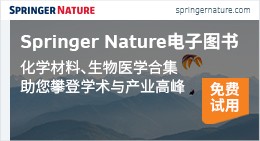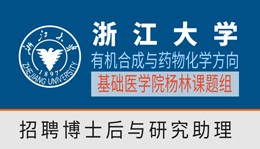当前位置:
X-MOL 学术
›
J. Tissue Eng. Regen. Med.
›
论文详情
Our official English website, www.x-mol.net, welcomes your feedback! (Note: you will need to create a separate account there.)
Effect of the small compound TD‐198946 on glycosaminoglycan synthesis and transforming growth factor β3‐associated chondrogenesis of human synovium‐derived stem cells in vitro
Journal of Tissue Engineering and Regenerative Medicine ( IF 3.1 ) Pub Date : 2019-02-20 , DOI: 10.1002/term.2795 Ryota Chijimatsu 1, 2 , Fumiko Yano 3, 4 , Taku Saito 2 , Masato Kobayashi 1 , Shuichi Hamamoto 1 , Takashi Kaito 1 , Junichi Kushioka 1 , David A. Hart 5 , Ung‐il Chung 4 , Sakae Tanaka 2 , Hideki Yoshikawa 1 , Norimasa Nakamura 1, 6, 7
Journal of Tissue Engineering and Regenerative Medicine ( IF 3.1 ) Pub Date : 2019-02-20 , DOI: 10.1002/term.2795 Ryota Chijimatsu 1, 2 , Fumiko Yano 3, 4 , Taku Saito 2 , Masato Kobayashi 1 , Shuichi Hamamoto 1 , Takashi Kaito 1 , Junichi Kushioka 1 , David A. Hart 5 , Ung‐il Chung 4 , Sakae Tanaka 2 , Hideki Yoshikawa 1 , Norimasa Nakamura 1, 6, 7
Affiliation
As an alternative to chondrocytes‐based cartilage repair, stem cell‐based therapies have been investigated. Specifically, human synovium‐derived stem cells (hSSCs) are a promising cell source based on their highly capacities for chondrogenesis, but some methodological improvements are still required towards optimal cartilage regeneration. Recently, a small compound, TD‐198946, was reported to promote chondrogenesis of several stem cells, but the effect on hSSCs is still unknown. This study aimed to examine the effects of TD‐198946 on chondrocyte differentiation and cartilaginous tissue formation with hSSCs. A range of concentrations of TD‐198946 were examined in chondrogenic cultures of hSSC‐derived cell pellets. The effect of TD‐198946 on glycosaminoglycan (GAG) production, chondrocyte marker expression, and cartilaginous tissue formation was assessed. At concentrations >1 nM, TD‐198946 dose‐dependently enhanced GAG production, particularly hyaluronan, whereas chondrocyte differentiation was not impacted. When combined with transforming growth factor β3 (TGFβ3), TD‐198946 promoted chondrocyte differentiation and production of cartilaginous matrices at doses <1 nM as judged by SOX9, S100, and type 2 collagen upregulation. Conversely, doses >1 nM TD‐198946 attenuated TGFβ3‐associated chondrocyte differentiation, but aggrecan was efficiently produced at 1 to 10 nM TD‐198946 as judged by safranin O staining. Thus, TD‐198946 exhibited different dose ranges for either GAG synthesis or chondrocyte differentiation. Regarding use of TD‐198946 for in vitro engineering of cartilage, cartilaginous particles rich in type 2 collagen and GAG were predominately created with TGFβ3 + 0.25 nM TD‐198946. These studies have demonstrated that TD‐198946 synergistically enhances chondrogenesis of hSSCs in a unique dose range, and such findings may provide a novel strategy for stem cell‐based cartilage therapy.
中文翻译:

小化合物TD‐198946对人滑膜来源干细胞糖胺聚糖合成及转化生长因子β3相关软骨形成的影响
作为基于软骨细胞软骨修复的替代方法,已经研究了基于干细胞的疗法。特别地,基于人类滑膜来源的干细胞(hSSCs)具有很高的软骨形成能力,它是一种有前途的细胞来源,但仍然需要对方法进行一些改进以实现最佳的软骨再生。最近,据报道有一种小化合物TD-198946可以促进几种干细胞的软骨形成,但是对hSSC的作用仍是未知的。这项研究旨在检查TD‐198946对hSSCs对软骨细胞分化和软骨组织形成的影响。在hSSC衍生的细胞沉淀物的软骨培养物中检测了一系列TD-198946浓度。TD‐198946对糖胺聚糖(GAG)产生,软骨细胞标志物表达,并评估软骨组织的形成。在浓度> 1 nM时,TD-198946剂量依赖性地提高了GAG的产量,尤其是透明质酸,而软骨细胞的分化不受影响。当与转化生长因子β3(TGFβ3)结合使用时,根据SOX9,S100和2型胶原蛋白的上调判断,TD-198946以小于1 nM的剂量促进软骨细胞的分化和软骨基质的产生。相反,大于1 nM TD-198946的剂量会减弱TGFβ3相关的软骨细胞分化,但通过番红素O染色判断,聚集蛋白聚糖在1到10 nM TD-198946时有效产生。因此,TD-198946对GAG合成或软骨细胞分化表现出不同的剂量范围。关于将TD‐198946用于软骨的体外工程设计,TGFβ3+ 0.25 nM TD-198946主要产生富含2型胶原和GAG的软骨颗粒。这些研究表明,TD-198946在独特的剂量范围内协同增强了hSSC的软骨生成,这些发现可能为基于干细胞的软骨治疗提供新的策略。
更新日期:2019-02-20
中文翻译:

小化合物TD‐198946对人滑膜来源干细胞糖胺聚糖合成及转化生长因子β3相关软骨形成的影响
作为基于软骨细胞软骨修复的替代方法,已经研究了基于干细胞的疗法。特别地,基于人类滑膜来源的干细胞(hSSCs)具有很高的软骨形成能力,它是一种有前途的细胞来源,但仍然需要对方法进行一些改进以实现最佳的软骨再生。最近,据报道有一种小化合物TD-198946可以促进几种干细胞的软骨形成,但是对hSSC的作用仍是未知的。这项研究旨在检查TD‐198946对hSSCs对软骨细胞分化和软骨组织形成的影响。在hSSC衍生的细胞沉淀物的软骨培养物中检测了一系列TD-198946浓度。TD‐198946对糖胺聚糖(GAG)产生,软骨细胞标志物表达,并评估软骨组织的形成。在浓度> 1 nM时,TD-198946剂量依赖性地提高了GAG的产量,尤其是透明质酸,而软骨细胞的分化不受影响。当与转化生长因子β3(TGFβ3)结合使用时,根据SOX9,S100和2型胶原蛋白的上调判断,TD-198946以小于1 nM的剂量促进软骨细胞的分化和软骨基质的产生。相反,大于1 nM TD-198946的剂量会减弱TGFβ3相关的软骨细胞分化,但通过番红素O染色判断,聚集蛋白聚糖在1到10 nM TD-198946时有效产生。因此,TD-198946对GAG合成或软骨细胞分化表现出不同的剂量范围。关于将TD‐198946用于软骨的体外工程设计,TGFβ3+ 0.25 nM TD-198946主要产生富含2型胶原和GAG的软骨颗粒。这些研究表明,TD-198946在独特的剂量范围内协同增强了hSSC的软骨生成,这些发现可能为基于干细胞的软骨治疗提供新的策略。







































 京公网安备 11010802027423号
京公网安备 11010802027423号